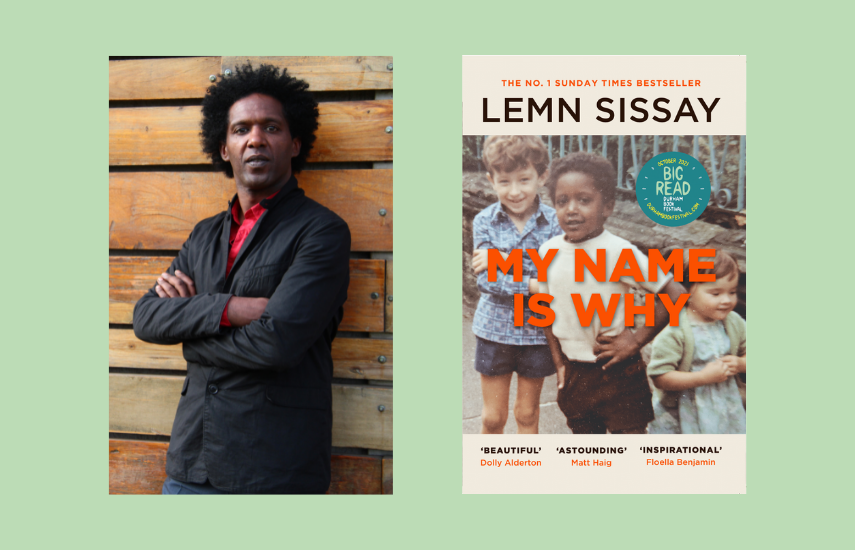REVIEW: The Big Read: Lemn Sissay
Posted by

Review by Abbie Longmate
Growing up in Manchester, I’ve always been surrounded by Lemn Sissay’s potent poetry. His words line the slabs of Tib Street; they form murals on the walls of the local takeaway; they’re painted on the rain-soaked brickwork of houses. But hearing Lemn read them aloud at The Big Read event gave them a bolder spark than ever before, and encouraged me to sit still for a moment to truly appreciate how powerful the spoken word can be in capturing human emotion.
One needed only to look around the full Gala Theatre to recognise the ways in which Lemn has touched humankind through his memoir My Name is Why, and it’s no surprise that the book been chosen as Durham Book Festival’s Big Read this year. The narrative tells of Lemn’s turbulent experience of the care system during his youth: how the government was allowed to steal a child, the treatment of black and marginalised children within the care system, and Lemn’s personal journey to rediscovering his sense of self following the retrieval of his files from Wigan County Council.
The Big Read event showcased Lemn’s natural talent for commanding the room through his spoken words, too. I’m hesitant to call him a ‘performer’, however, as no part of what he says feels performative. Lemn speaks from the heart and connects with the soul. The snippet of poetry he read from Chapter 7,
‘Dawn is a wake for dusk
Light will find what it must
What will be will be and thus
Shadows speak for us’
reflects the theme that Lemn touches on throughout the event: that light can shine through from the darkest times. This can be recognised through the memoir itself, where Lemn demonstrates the power of writing as a tool of both reflection and education.
The more people who read about his experiences, the more society itself will better understand the realities surrounding those institutions we place so much faith in.
What strikes the listener most is Lemn’s stylistic flair, the way his poignant experiences fuse with his ability to draw in the crowd through his abstraction of human emotions. In one instance, Lemn discussed the ‘invisible oppression of institutionalisation’ entwined with the high levels of empathy subsequently felt by children in care. He also has a dynamic stage presence which complements his natural ability to engage with the audience.
Together with Professor Simon James, who chairs the event, the audience offered some provocative points regarding how society might improve the treatment of children in the care system. To fit such dense topics into a one-hour event was remarkable, and I believe I speak for the rest of the audience in wishing for a longer event – both to allow for more questions, and perhaps to hear more about how reading Lemn’s memoir might prompt change in the way we think about the care system.
As said by Lemn himself, “things do fall apart”. And for vulnerable children abused and refused by the very institution designed to care for them, things fall apart before the child has even had a chance to form. By sharing his story in My Name Is Why and the Big Read event, Lemn offers some hope towards a better understanding of the care system in the future. But we must listen before we can learn, and even in the darkest moments, we can find lessons and light within poetry.
The event is compelling, spirited and stimulating. It challenges perspective and forces you to actively listen. The same can be said about My Name Is Why.


